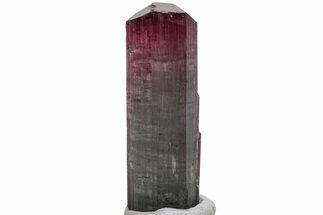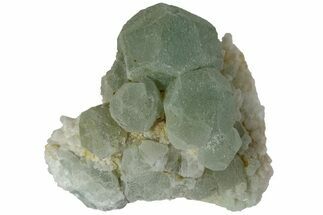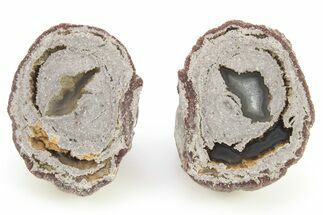This Specimen has been sold.
1.6" Vibrant Blue, Botryoidal Gibbsite - China
This is a 1.6" wide vibrant blue, botryoidal formation of gibbsite that was collected from the Yunnan Province of China.
Gibbsite is an aluminum hydroxide with the chemical formula Al(OH)3. It is a secondary mineral that forms in weathered surface zones of low-silica igneous rock, pegmatites, clay deposits, and limestones, and is often a component of the aluminum ore bauxite. It exhibits a variety of different colors depending on the atmosphere and impurities present during formation, and is primarily found encrusting rock in globular, botryoidal, and stalactitic habits.
Gibbsite's first documented discovery was in 1820 by Chester Dewey, who found it included in a bauxite specimen. It was mistakenly identified as wavellite, but was later reidentified as a new mineral and named hydrargillite. In 1822, the name was changed to Gibbsite in honor of a mineralogist by the name of George Gibbs.
Gibbsite's first documented discovery was in 1820 by Chester Dewey, who found it included in a bauxite specimen. It was mistakenly identified as wavellite, but was later reidentified as a new mineral and named hydrargillite. In 1822, the name was changed to Gibbsite in honor of a mineralogist by the name of George Gibbs.
 Reviews
Reviews













